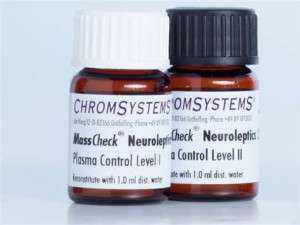
Neuroleptics – drugs for the treatment of mental disorders
Neuroleptics are representatives of a large class of psychotropic drugs. The latter have a selective effect on the human psyche, i.e. on his thinking and emotions. Neuroleptics, in turn, slow down the neuropsychic processes and calm a person.

However, if these antipsychotic drugs are prescribed to a healthy person, then a state of neurolepsy develops. It is characterized by the fact that any emotions are suppressed, both positive (joy, love) and negative (fear, anxiety), but the ability to think normally is preserved. Therefore, if neuroleptics are prescribed incorrectly, they turn a healthy person into a soulless and indifferent one.
Neuroleptics – what class of drugs
These drugs have their effect by blocking nerve receptors of different classes. The blockade of dopamine and serotonin receptors is most pronounced. It leads to the manifestation of an antipsychotic effect. Histamine, adrenergic and cholinergic are inhibited to a lesser extent. Such a complex receptor effect causes a number of positive effects on the patient
Uniform suppression of symptoms of psychosis
Elimination of delusional ideas, hallucinations, disturbed behavior and thinking
Suppression of pathological disinhibition of drives, vt.h. and sexual
Activation of mental processes, if they are suppressed (for example, with depression)
Improving the ability to think
General calming and normalization of sleep in cases of severe insomnia.
Neuroleptics have not only an antipsychotic effect. They also have other therapeutic effects.
Some of them can be used in medicine to treat diseases not related to the mental sphere. And others may cause the appearance of adverse reactions when using neuroleptics. These drugs
They enhance the effect of painkillers, especially from the group of narcotic analgesics, and deepen anesthesia
They have an antiemetic effect, and also suppress hiccups
Reduce the manifestations of allergic reactions due to the blockade of histamine receptors
They increase the likelihood of convulsive syndrome, because they reduce the minimum threshold of arousal
They can lead to the appearance of tremors (trembling of the hands) due to the effect on dopamine receptors
Increase the secretion of prolactin, leading to the appearance of colostrum when pressing on the nipples, vt.h. and in men
In women, these drugs can cause menstrual disorders, because they reduce the production of FSH and LH and, accordingly, estrogen and progesterone
They lower the body temperature, bringing it closer to the ambient temperature (this condition is called poikilothermia). This effect is successfully used during surgical interventions on the heart and brain.
Situations when neuroleptics are irreplaceable
Neuroleptics as drugs that interfere with the work of the brain, doctors prescribe only if there are special indications. These include
Psychoses
Schizophrenia
Alcohol addiction
Psychomotor agitation, when a person’s irritability is accompanied by strong gestures and unmotivated movements
Manic states (it can be megalomania, persecution mania, etc.)
Depression, accompanied by obsessive delirium
Diseases in which involuntary muscle contractions, grimacing are observed
Insomnia that cannot be treated by other means
Vomiting of central origin, which cannot be dealt with by other methods
Persistent hiccups
Severe anxiety
Stroke (neuroleptics protect nerve tissue well from progressive damage).
In addition, a person may encounter neuroleptics before surgery or other intervention accompanied by pain. They are used for anesthesia and for neuroleptanalgesia (turning off pain sensitivity with muffling consciousness).
Side effects of neuroleptics – what to fear when taking them and what to do
The use of neuroleptics is a serious treatment. It can be accompanied by various adverse reactions. Therefore, in the process of taking them, it is necessary to visit a doctor periodically to identify possible side effects and eliminate them in a timely manner. They can be diverse
Acutely developing muscular dystonia (manifested by spasm of the muscles of the face, tongue, back and neck, resembling an epileptic seizure)
Motor restlessness (causeless movements), with the appearance of which it is necessary to reduce the dose of the drug
Parkinsonian–like symptoms are maskiness of the face, trembling of the hands, shuffling when walking, stiffness of the muscles. These signs require the appointment of antiparkinsonian agents
Cardiac arrhythmias
Pressure drop during the transition from horizontal to vertical position
Weight gain
Reduction of the number of leukocytes in the blood (it is recommended to conduct a general clinical blood test every week)
Jaundice caused by stagnation of bile
Hyperprolactinemia, which leads to impotence in men, and menstrual cycle disorders and infertility in women, Pupil dilation and increased sensitivity to light
In some cases, these drugs can cause depression. Therefore, some patients may need to prescribe tranquilizers at the first stage, and neuroleptics at the second stage.
Is it possible to cancel a neuroleptic on your own?
Prolonged use of neuroleptics leads to mental and physical addiction of the body. It is especially severe if the drug is canceled quickly. This leads to aggressiveness, depression, pathological arousal, emotional lability (causeless tearfulness), etc. Abrupt cancellation is fraught with aggravation of the course of the underlying disease. All these symptoms are very similar to narcotic “withdrawal”.
Therefore, it is necessary to stop treatment with psychoactive substances only under the supervision of a doctor, following his recommendations. The dose reduction should be gradual with a simultaneous decrease in the frequency of administration. After that, antidepressants are prescribed to help overcome the formed neuroleptic dependence.
Despite the presence of side effects and addiction, neuroleptics are effective drugs in the treatment of many mental disorders. They help a person to return to the usual (normal) way of life. And it’s worth it to endure unpleasant symptoms, the severity of which the doctor can minimize by making the correct appointment and cancellation.
List of known neuroleptics:
Typical neuroleptics.
Acepromazine Atravet, Acezin
Acetophenazine Tindal
Benperidol Frenactyl
Bromperidol Bromidol, Bromodol
Butaperazine Repoise, Tirilen
Carfenazine
Chlorproethazine
Chlorpromazine Largactyl, Thorazine
Chloroprotixen Cloxan, Taractan, Truxal
Clopentixol Sordinol
Ciamazine Terzian
Dixyrazine Esucos
Droperidol Droleptan, Dridol, Inapsin, Xomolix, Innovar
Fluanisone
Flupentixol Depixol, Fluanxol
Fluphenazine Prolixin, Modecat
Fluspirilen Redeptin, Imap
Haloperidol Haldol
Levomepromazine Nosinan, Nosinan, Levoprom
Lenperon Elanon-B
Loxapine Loxapak, Loxitan
Mesoridazine Serentil
Metitepine
Molindon Moban
Moperon Luvatren
Oxypertin Equipertin, Forit, Integrin, Lanturil, Lotavin, Opertil
Oxyprotepin
Penfluridol Semap, Mycephalus, Longoperidol
Perazine Taxilan
Pericyzine Neulectil, Neulactyl
Perphenazine Trilafon
Pimozide Orap
Pipamperon Dipiperon, Dipipiperal, Piperonil, Piperonil, Piperonil
Piperacetazine
Pipothiazine Piportil
Prochlorperazine Compazine, Stemzin, Buccastem, Stematil, Phenotil
Promazine Sparin
Protipendil
Spiperone Spiroperidol, Spiropitan
Sulforidazine Imagotan, Psychosone, Inophal
Thiopropasate Artalan, Dartalan, Dartan
Thioproperazine Majeptil
Thioridazine Mellaril, Melleril
Thiotixen Navane
Thymperon
Trifluoperazine Stelazine
Trifluperidol
Triflupromazine Vesprin
Zuclopentixol Clopixol
Atypical neuroleptics
Amoxapine Asendin, Asendis, Defanyl, Demolok
Amisulpride Amazeo, Amipride, Amival, Solian, Saltus, Sulpitac, Sulprex
Aripiprazole
Asenapine
Blonanserin
Brexpiprazole
Cariprazine Vraylar
Carpipramine Prazinil, Defecton
Clocapramine Clofectone, Padrasen
Clorotepine Clotepine, Clopiben
Clothiapine Entumine
Clozapine Clozaril
Iloperidone Fanapt
Levosulpiride
Lumateperone Caplita
Lurasidone Latuda
Melperon Bunil, Buronil, Unerpan
Mosapramine Cremin
Nemonapride Emilas
Olanzapine Ciprex, Ozace, Lanzec, Cipadhera
Paliperidone Invega
Perospirone Lullan
Quetiapine Seroquel
Remoxipri Roxiam
Rutherpine Raudixin, Serpalan, Serpasil
Risperidone Risperdal, Cepidone
Sertindol Cerdolect
Sulpiride Sulpiride, Eglonil
Sultopride Barnetil, Barnotil, Topral
Tiaprid Equilium, Tiapridal
Veralipride Agrial, Agradil
Ziprazidone Geodon, Zeldox
Zotepine Nipolet.
Under development
Perphenazine gamma-aminobutyrate
Pimavanserin
F-15063
ITI-007
Lu AF35700
RP5063
Stefolidine

